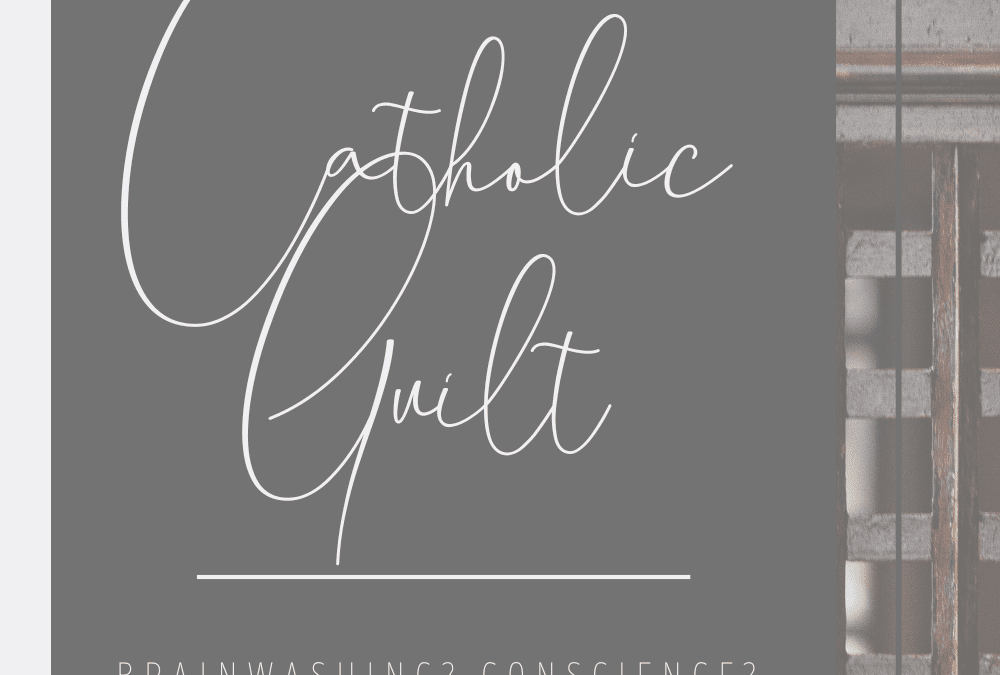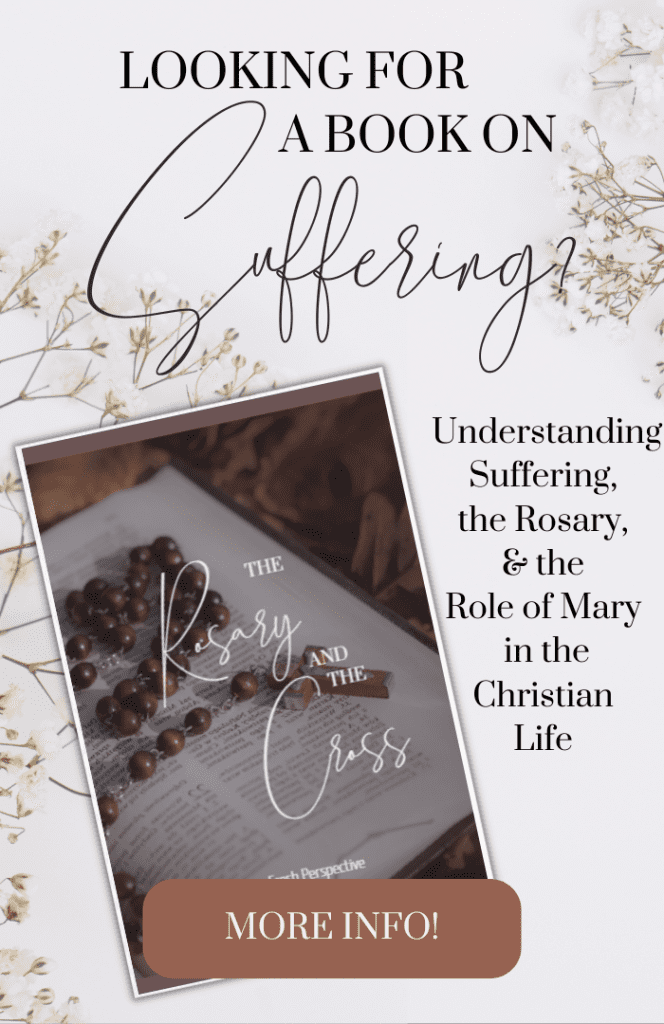Catholic Guilt is an unpleasant conversation topic. Most people refer to “Catholic guilt” as the unreasonable weight of conscience they experience for “sins” they personally deem to be harmless. Why should God care if I do this? I’m not hurting anyone. There is no reason I should walk around with the weight of the “guilt” of such-and-such “private”, “mortal” sin hanging over my head when sin is an “inevitable part of being human”. It is widely believed that sin is a natural part of the human condition and that, because of this, the “Catholic” concept of striving for perfection is a recipe for emotional, psychological, and even spiritual disaster.
God loves me, and I love Him, so what’s the problem? He died for me “while we were still sinners” (Romans 5:8) so why exhaust myself trying to achieve the impossible?
2 Comments on Catholic guilt
#1- Guilt is a God given emotion to signal that something is not right.
Experiencing guilt is an experience of humility. It recognizes fault (as opposed to blaming circumstances and playing the victim) and it is a springboard toward change . In this sense it is a good and holy emotion of every healthy conscience that is doing exactly what God intended it to do.
However,
It is not very comfortable. It does not allow the “guilty” party to rest in elevated self-complacency and self-love. This makes it a very valuable emotion that encourages the pursuit of change. However, when most people do not understand grace or how to use it intentionally, guilt feels like a “repressive emotion” that makes them want to throw it off and blame religious brainwashing for the sake of their happiness.
What if the problem is not that religion taught you “too much”, what if it didn’t teach you ENOUGH!?!?
We have a second option:
#2 – This debate boils down to the fact that we have lost our faith that Christian perfection is indeed possible. That sin is avoidable, and that guilt has purpose.
We have reduced our belief in God to the God of the comfortable, the God of the possible. We’ve made Him out to be a fluffy God who doesn’t expect nor desire anything from us, because we couldn’t possibly handle the thought of it mattering to fall short of His expectations. But, this is precisely where we go wrong. He is the God of Creation, of grandeur, of holiness, of awe and wonder. He is the God of greatness and miracles. It doesn’t have to be possible for God to require it. He requires the impossible so that we rely on Him.
Catholicism can “require” perfection (really, this is not Catholicism’s requirement but that of God Himself – Matthew 5:48) because it is precisely the only place in which perfection is possible. God can require perfection precisely because of the Church and the Sacraments He instituted are the only sources of official, tangible, and intentional grace, that enable us to not only accomplish, but even desire the good.
I have not come to abolish the law and the prophets but to fulfill. – Matthew 5:17
Yes, grace exists outside the Church. It is free and undeserved gift given to instill in us a deeper desire for and recognition of God, but it is sporadic, fleeting, and largely superficial. It gives us tiny glimpses of the fulfillment we desire so that we are encouraged to seek and pursue it. But, deep, transformative grace is intentional. Intentionally pursued, and accepted. We first learn the sources of this living water and then we use every source of grace as a tool in pursuit of the perfection required of us. He demands that we become “like Christ”, well, Grace is the Divine life come into our souls that enables the impossible. When we learn to maximize all sources of grace, then we will have fully grafted ourselves to the vine, and with His life coursing through us, then we can produce much fruit.
Here’s the clincher: All things are possible with God. – Matthew 19:26
Catholicism does not require perfection from souls of their own strength. This would indeed be ridiculous and a weight well worth casting off. But, not if the requirement comes with the means to achieve it.
It is only fitting that the king provides the guest with the wedding garment first, and then requires that they wear it. It is only the person who refuses to wear the wedding garment after it has been supplied for Him who is cast out of the feast. He indeed is truly guilty of grave disrespect and deserves to be cast from the feast.


